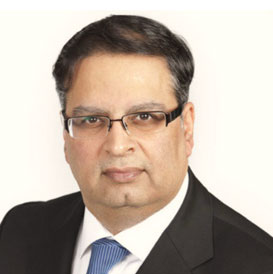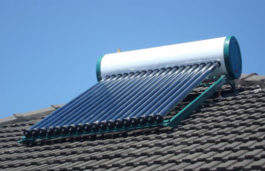
During the current scenario where a wave of ‘AatmaNirbhar’ and ‘Vocal for Local’ is gaining traction amid global economic turmoil on the back of coronavirus pandemic, there is also a need to check that how far we have reached till now, what will be the challenges and how far will be the road ahead in order to become self-reliant. Here’re some views and suggestions from the industry stakeholders on the scope for solar equipment manufacturing in India, especially modules and cells, in the next few years:
Avinash Hiranandani, Global CEO & Managing Director, RenewSys India Pvt. Ltd.

Yes, definitely! India already has a manufacturing capacity of over 10 GW of modules and 4 GW+ of cells and a further capacity increase of 3-4 GW is expected. This will take care of the 12- 15 GW planned installation every year for the next 4-5 years. Developing a robust manufacturing and value chain ecosystem including polysilicon, wafer, and component production is crucial to ensure this planned growth. The Ministry is also focussing on maintaining the quality and reliability of solar products through initiatives like the ALMM. Together these will greatly enhance India’s position as a supplier of choice worldwide. The Government is taking proactive measures to help the industry grow. MNRE has been interacting closely with the industry throughout this COVID period and is working to bolster the growth of the domestic industry. DCR Projects (Domestic Content Requirement) are examples of a great initiative to support Indian manufacturers, as they require the use of domestically manufactured solar cells and solar modules. Such schemes are important and should continue as they offer significant support to the domestic industry.
Yash Jain, Chief Marketing Officer, MicroSun Solar Tech Pvt Ltd

PM Modi’s aggressive push for ‘Make in India’ to reinforce domestic manufacturing and make its economy ‘AatmaNirbhar’ in the post-pandemic era is a welcome opportunity for India’s solar sector. India can take due advantage and full opportunity only if it’s capital, land and labour reforms are restructured as per today’s market situation. Lack of consistent govt policy and financial support to match the scale, quality and low price of Chinese imports, have undercut the growth of India’s solar technology and manufacturing. An aggressive strategy for the long-term development of industry in line with the National Solar Mission that addresses price competitiveness, profitability, feasible finance and capacity gaps is an immediate imperative. The sustainable domestic manufacturing industry can save approx USD 22 billion in equipment imports by 2025, provide equipment supply security, and create 40,000 direct and 100,000 indirect jobs in the next 5 years. Our vision at MicroSun Solar is to make energy increasingly affordable in the next 5 years.
Manish Das, Co-Founder, Skilancer Solar

India is working on the ambition to make the solar industry self-reliant with the ongoing vocal for local campaign during this coronavirus outbreak. The supply disruptions from China and other foreign countries have led to a subsequent shortage of solar components and modules, which have impacted India’s ambitious energy target of achieving 100 GW of solar capacity by 2022. The only way to achieve this would require consistent government policy and support to the domestic manufacturing solar equipment industry which would then enable them to save approx USD 42 billion in equipment imports by 2030 and create direct and indirect opportunities in the job market. And we can say that if these efforts are continued, India will be on the way to become self-reliant in terms of domestic solar panel manufacturing.




























